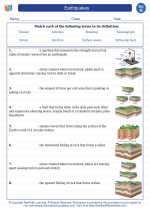Protists
Protists are a diverse group of eukaryotic microorganisms that are not fungi, animals, or plants. They are primarily unicellular, although some species are multicellular. Protists are found in various aquatic environments, as well as in moist terrestrial habitats. This group includes a wide range of organisms, from algae to protozoa.
Characteristics of Protists
- Eukaryotic: Protists have complex cells with a true nucleus and membrane-bound organelles.
- Diverse: They exhibit a wide range of morphological and physiological characteristics.
- Reproduction: Protists may reproduce asexually through binary fission, budding, or spore formation, or sexually through conjugation or syngamy.
- Motility: Many protists are capable of locomotion using structures such as flagella, cilia, or pseudopodia.
- Nutrition: They can be autotrophic (photosynthetic) or heterotrophic (consuming organic matter).
Classification of Protists
Protists are classified into several groups:
- Algae: Photosynthetic protists that can be unicellular, colonial, or multicellular.
- Protozoa: Heterotrophic protists that can be classified based on their mode of locomotion (flagellates, ciliates, amoebas, etc.).
- Slime Molds: Protists that form multicellular, slug-like structures under certain conditions.
- Water Molds: Protists that are often found in water or moist environments, and some are parasites of plants and animals.
Ecological and Economic Importance
Protists play significant roles in various ecosystems. They are important producers in aquatic food chains, and some form symbiotic relationships with other organisms. Additionally, certain protists are responsible for diseases such as malaria, African sleeping sickness, and giardiasis, impacting human and animal health.
Study Guide
To study protists effectively, consider the following key points:
- Understand the defining characteristics of protists, including their cellular structure, reproduction methods, and modes of nutrition.
- Be able to differentiate between the major groups of protists, such as algae, protozoa, slime molds, and water molds.
- Explore the ecological roles of protists in various environments and their significance in food webs.
- Examine the impact of protists on human health, particularly their role as pathogens and disease-causing agents.
- Consider the economic importance of protists, including their use in biotechnology, pharmaceuticals, and environmental applications.
By mastering these concepts, you will develop a comprehensive understanding of protists and their significance in the natural world.
[Protist] Related Worksheets and Study Guides:
.◂Science Worksheets and Study Guides Eighth Grade. Earthquakes

 Worksheet/Answer key
Worksheet/Answer key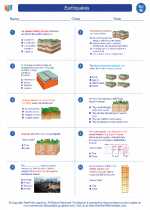
 Worksheet/Answer key
Worksheet/Answer key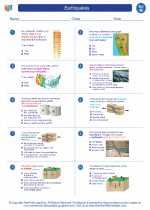
 Vocabulary/Answer key
Vocabulary/Answer key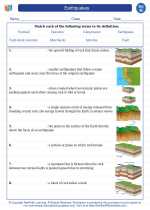
 Vocabulary/Answer key
Vocabulary/Answer key
 Vocabulary/Answer key
Vocabulary/Answer key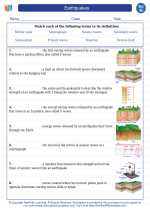
 Vocabulary/Answer key
Vocabulary/Answer key